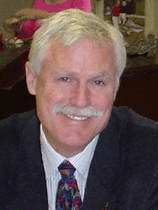Edwin (Ed) S. Ellis, Ph.D.

Affliations:
- Retired Professor, Special Education and Multiple Abilities - University of Alabama
- President, Makes Sense Strategies, LLC
- Research Affiliate and SIM Professional Development Specialist - University of Kansas Center for Research on Learning
Background and Interests:
Although I didn’t realize it at the time, my interest in learning and teaching began way back in 1965 at age 15. My youngest brother had been diagnosed with learning disabilities, and with both parents working 80+ hours a week, many of the responsibilities for his treatment fell on my shoulders. This was back when perceptual motor training to establish brain hemisphere dominance to cure LD was in vogue. I spent countless hours doing “angels in the snow” types of activities with him and trying to help him learn to read and write, although I was somewhat clueless about how to do it. His and my own emotional experiences led me to pursue college studies in the area of psychology, and becoming a teacher never crossed my mind. I accidentally fell into special education when an opportunity presented itself with a tuition grant to pursue a master’s degree in special education/learning disabilities. I didn’t have anything else to do, and it seemed like a way to extend my interest in psychology in a practical way. Only when I had my own classroom and became very invested in understanding my students did I realize that I was one of those people who was “born to teach”… and born to observe and think about learning. I’ve been hooked ever since!
During the late 1970s, due to my service volunteer experiences developing a pretrial diversion program for delinquent adolescents and working in a adolescent drug rehabilitation program, paired with my experience as a teacher of students with LD, I became the education coordinator for one of the Child Service Demonstration Centers (CSDC), which were federally funded programs charged with developing and validating interventions for students with LD. Our particular CSDC program focused on developing interventions for adolescents with LD who had been adjudicated (convicted). Of the many CSDCs that were funded, only a few focused on services for adolescents, and fewer still actually did anything to validate their effectiveness. One of these was a CSDC directed by Don Deshler, a new Assistant Professor at KU, and another one was directed by Naomi Zigmond at the University of Pittsburgh. Those of us concerned with the validation of our programs would meet at conferences to share what we were doing and our data. These were exciting times for all of us, and especially for me because I was collaborating with some brilliant people, and we were all trying to figure out what to do, how to do it, and how well it worked. Most of the CSDCs, however, failed to validate their interventions, so subsequent federal support shifted to funding five research institutes where learning disabilities could be addressed in a systematic, empirical manner, and interventions could be scientifically validated.
Dick Shieffelbush and Ed Meyen were awarded one of these institute grants, and thus the Institute for Research in Learning Disabilities (KU-IRLD) was born. Don Deshler, who was the Coordinator for the KU-IRLD recruited many of us who had been collaborating with him within the CSDCs to come to KU for doctoral studies and to work at the KU-IRLD (now known as the KU-CRL). That’s how I landed in Kansas, and that’s how I became a part of an effort to change education that continues today.